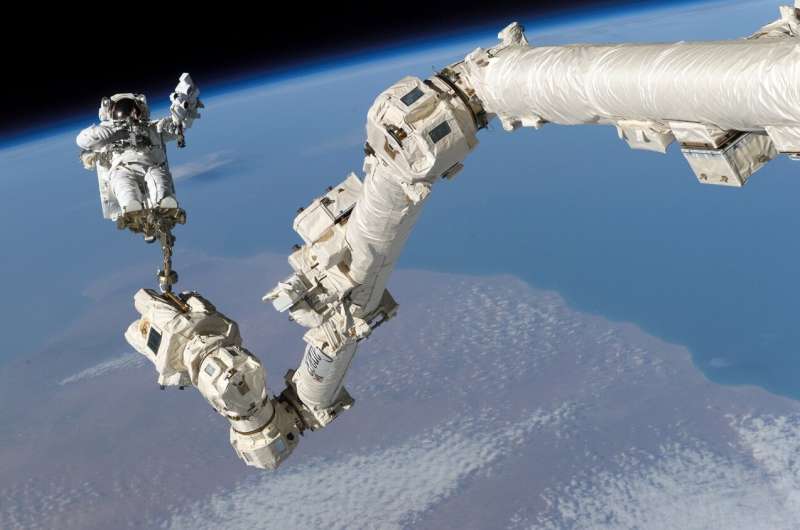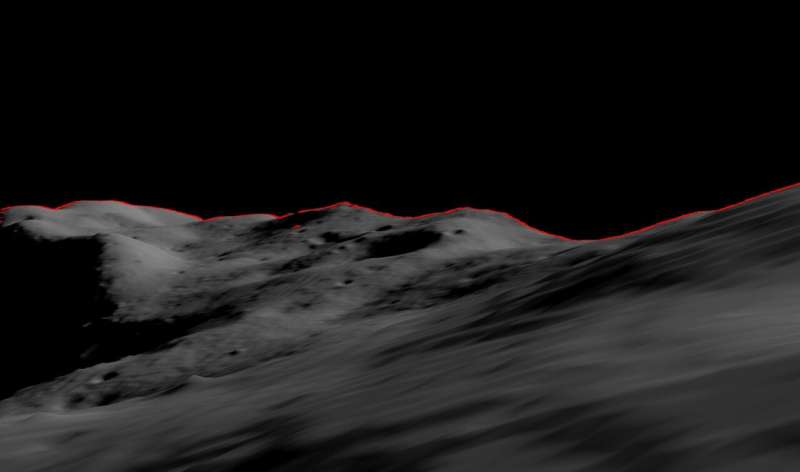
Copernical Team
NanoAvionics to supply Constellr with two satellites to help saving 60 billion tons of water globally
 Kongsberg NanoAvionics has signed a contract with thermal data provider Constellr to supply it with two of its flagship MP42 microsatellite buses. Having recently raised 10 million euros, Germany-based Constellr will use the two satellites to develop the world's first scalable water stress monitoring system.
Collaborating since the very early days of the German startup, NanoAvionics has al
Kongsberg NanoAvionics has signed a contract with thermal data provider Constellr to supply it with two of its flagship MP42 microsatellite buses. Having recently raised 10 million euros, Germany-based Constellr will use the two satellites to develop the world's first scalable water stress monitoring system.
Collaborating since the very early days of the German startup, NanoAvionics has al DOD provides update on Mission to Identify 'Anomalous Phenomena'
 In July, the DOD set up the All-domain Anomaly Resolution Office to, among other things, identify 'unidentified anomalous phenomena' which might pose a threat to national security and the operations of both the military and other federal agencies.
"Unidentified anomalous phenomena," is anything in space, in the air, on land, in the sea or under the sea that can't be identified, and which m
In July, the DOD set up the All-domain Anomaly Resolution Office to, among other things, identify 'unidentified anomalous phenomena' which might pose a threat to national security and the operations of both the military and other federal agencies.
"Unidentified anomalous phenomena," is anything in space, in the air, on land, in the sea or under the sea that can't be identified, and which m DOD Official: Norms Must be Established in Space
 Last week, the United Nations approved a resolution calling on nations not to conduct destructive, direct-ascent antisatellite missile tests. The United States agreed to the resolution, while China and Russia were among just nine countries that voted against it.
Refraining from conducting those kinds of tests in space, in part, prevents the creation of new and dangerous space debris.
Last week, the United Nations approved a resolution calling on nations not to conduct destructive, direct-ascent antisatellite missile tests. The United States agreed to the resolution, while China and Russia were among just nine countries that voted against it.
Refraining from conducting those kinds of tests in space, in part, prevents the creation of new and dangerous space debris. STARCOM publishes Foundational Doctrine on Sustainment
 Space Training and Readiness Command recently released its latest keystone-level Space Doctrine Publication - Space Doctrine Publication (SDP) 4-0, Sustainment - which articulates extant best practices and lessons learned for sustainment of space forces.
SDP 4-0 presents the United States Space Force's current body of knowledge pertaining to the sustainment of space forces and capabilities
Space Training and Readiness Command recently released its latest keystone-level Space Doctrine Publication - Space Doctrine Publication (SDP) 4-0, Sustainment - which articulates extant best practices and lessons learned for sustainment of space forces.
SDP 4-0 presents the United States Space Force's current body of knowledge pertaining to the sustainment of space forces and capabilities Building a powerhouse in deep space
 Gateway will be humanity's first space station in lunar orbit and serve as an essential element of NASA's Artemis missions. As astronauts live and work on Gateway to enable sustained exploration and research in deep space, their efforts will be made possible by the Power and Propulsion Element (PPE). A foundational component of the lunar outpost and the most powerful solar electric spacecraft ev
Gateway will be humanity's first space station in lunar orbit and serve as an essential element of NASA's Artemis missions. As astronauts live and work on Gateway to enable sustained exploration and research in deep space, their efforts will be made possible by the Power and Propulsion Element (PPE). A foundational component of the lunar outpost and the most powerful solar electric spacecraft ev First deep space biology experiment begins, follow along in real-time
 NASA's BioSentinel has carried living organisms farther from Earth than ever before - more than one million miles. Aboard the shoebox-sized CubeSat are microorganisms, in the form of yeast - the very same yeast that makes bread rise and beer brew.
On Dec. 5, BioSentinel was 655,730 miles from Earth when the BioSentinel team at NASA's Ames Research Center in California's Silicon Valley sent
NASA's BioSentinel has carried living organisms farther from Earth than ever before - more than one million miles. Aboard the shoebox-sized CubeSat are microorganisms, in the form of yeast - the very same yeast that makes bread rise and beer brew.
On Dec. 5, BioSentinel was 655,730 miles from Earth when the BioSentinel team at NASA's Ames Research Center in California's Silicon Valley sent US space entities examine future space technology
 Seventy professionals from the space ecosystem gathered for the Space Futures Workshop, Nov. 29-30, to examine future technologies and forge a path towards ensuring the U.S. maintains its advantage in the increasingly congested and contested space domain.
Convened by NewSpace New Mexico, the event held at the University of Colorado Boulder, marked the fifth time that U.S. Space Force leade
Seventy professionals from the space ecosystem gathered for the Space Futures Workshop, Nov. 29-30, to examine future technologies and forge a path towards ensuring the U.S. maintains its advantage in the increasingly congested and contested space domain.
Convened by NewSpace New Mexico, the event held at the University of Colorado Boulder, marked the fifth time that U.S. Space Force leade Corralling the devices capable of operating in the cold of deep space

The future of electric aircraft and deep space missions will rely on our ability to develop electrical and electronic components that can operate at the very low temperatures of the upper atmosphere and the cryogenic temperatures of space. A review of such technology is presented in the International Journal of Powertrains. The review looks specifically at semiconductor devices, passive components, and superconducting devices that operate at very low temperatures.
Mustafeez Ul-Hassan, Yalda Azadeh, Asif Imran Emon, and Fang Luo of the Department of Electrical and Computer Engineering at Stony Brook University, New York, U.S., point out that in terms of aeronautics and space travel there is a pressing need to usurp pneumatic, hydraulic, and mechanical systems with electrical components.
In terms of aircraft, such components will operate at the low temperatures of high-altitude flight, but also benefit from being held at cryogenic temperatures in terms of improving their efficiency. Indeed, the development of superconducting technology that by necessity operates at such temperatures would not only make electric aircraft more feasible and improve space travel option but improve the generation efficiency of wind turbines.
Russia may expedite launch of next space capsule after leak

NASA developing AI to navigate the lunar surface using landmarks

Much like how familiar landmarks can give travelers a sense of direction when their smart phones lose their lock on GPS signals, a NASA engineer is teaching a machine to use features on the Moon's horizon to navigate across the lunar surface.
